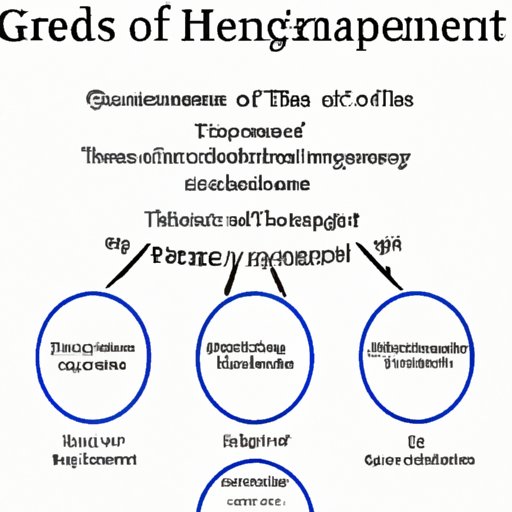Introduction
The germ theory of disease states that certain diseases are caused by microorganisms that enter the body and cause infection. This theory has revolutionized modern medicine and has had a massive impact on healthcare and public health. But who was the scientist behind this groundbreaking discovery? In this article, we will explore the life and work of Louis Pasteur, the scientist who is credited with inventing the germ theory.

Biography of Scientist Who Discovered Germ Theory
Louis Pasteur was a French chemist and microbiologist who is widely regarded as one of the most important scientists in history. He was born in 1822 in Dole, France, and studied chemistry and physics at the École Normale Supérieure in Paris. After graduating, he began teaching chemistry at the University of Strasbourg and continued to pursue his research in the field of chemistry and microbiology.
Pasteur made many significant contributions to science, but his most famous discovery was the germ theory of disease. He hypothesized that microscopic organisms were responsible for causing infections and diseases, and he conducted experiments to prove his theory. His discoveries revolutionized the fields of medicine and public health and have had an immense impact on modern society.

Historical Timeline of Germ Theory Development
The idea that germs could cause disease has been around since ancient times. The Greek physician Hippocrates proposed the theory of contagion in the 5th century BC, and the Roman physician Galen wrote about the concept of contagion in the 2nd century AD. However, it wasn’t until the 19th century that the idea of germs being responsible for disease was widely accepted.
In the 1860s, Pasteur conducted a series of experiments to prove his germ theory of disease. His experiments demonstrated that germs could be killed by heat, which led to the development of pasteurization. He also developed vaccines for rabies and anthrax, which were both major breakthroughs in the fight against infectious diseases.
In the 1880s, his work was further confirmed by German physician Robert Koch, who isolated the bacteria that caused tuberculosis. This discovery helped to further validate Pasteur’s germ theory and paved the way for major advances in medical science.
Exploring the Relationship Between Louis Pasteur and Germ Theory
Pasteur first became interested in the concept of contagious diseases while studying fermentation. He hypothesized that microorganisms were responsible for the process of fermentation and that they might also be responsible for other biological processes. He went on to conduct experiments to test his hypothesis.
In 1857, he published his findings in a paper titled “Etudes sur la Biere” (Studies on Beer). In this paper, he demonstrated that yeast was responsible for fermentation and that contamination by other microorganisms could spoil the beer. This was the first time that anyone had suggested that germs could cause disease.
He then went on to conduct further experiments to prove his theory. In 1861, he conducted an experiment in which he exposed chickens to a diseased dust sample and observed that the chickens became ill. This experiment provided further evidence that germs could cause disease.
In 1864, he published his final conclusions in a paper titled “Sur Les Corps Organises Qui Existent Dans L’Air” (On Organisms Present in the Air). In this paper, he concluded that germs were responsible for causing disease and that they could be spread from person to person. This paper was the first scientific proof of germ theory.

Overview of the Controversy Surrounding Germ Theory
Despite the evidence presented by Pasteur, many people still opposed his theory. Many doctors and scientists believed that disease was caused by miasma, or bad air, and not by germs. They argued that Pasteur’s experiments were flawed and that his conclusions were not backed up by sufficient evidence.
However, over time, more and more evidence emerged to support Pasteur’s claims. In 1882, German physician Robert Koch discovered the bacteria that caused tuberculosis, which helped to further validate Pasteur’s theory. By the early 1900s, germ theory had become widely accepted in the scientific community.
Scientific Breakthroughs that Led to Germ Theory
The discovery of germ theory would not have been possible without several key scientific breakthroughs. Improvements in microscopes allowed scientists to observe and study microorganisms, which was essential for understanding how germs could cause disease. Additionally, sanitation improvements such as the construction of sewers and water filtration systems helped to reduce the spread of infectious diseases.
Other discoveries, such as the work of Joseph Lister on antiseptic surgery, also helped to support the germ theory. Lister’s work showed that germs could be killed with antiseptics and that this could help to prevent the spread of infection.
Impact of Germ Theory on Modern Medicine
The discovery of germ theory has had a major impact on modern medicine. The development of antibiotics has allowed us to treat bacterial infections and save countless lives. Vaccines and immunization programs have helped to eradicate many deadly diseases, such as smallpox and polio. And public health initiatives, such as handwashing and food safety protocols, have helped to reduce the spread of infectious diseases.
Germ theory has also led to major advances in medical technology. Medical devices, such as catheters and artificial joints, are now routinely sterilized to prevent the spread of infection. Sterilization techniques, such as autoclaving and irradiation, have also been developed to ensure that medical instruments are free of harmful microorganisms.
Conclusion
The discovery of germ theory has had a profound impact on modern society. Louis Pasteur’s experiments provided the first scientific proof that germs can cause disease, and his work laid the foundation for major advances in medicine and public health. Thanks to his discoveries, we now have a better understanding of how infectious diseases are spread, and we are able to treat and prevent them more effectively.
(Note: Is this article not meeting your expectations? Do you have knowledge or insights to share? Unlock new opportunities and expand your reach by joining our authors team. Click Registration to join us and share your expertise with our readers.)
